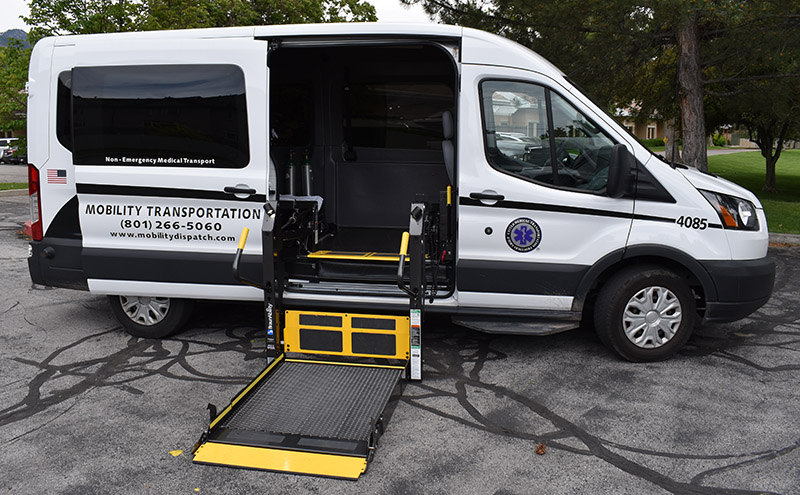Ensure Prompt Care with Tailored Medical Transportation Services Near Me
Ensure Prompt Care with Tailored Medical Transportation Services Near Me
Blog Article
Accessible and Affordable Medical Transportation Options for Seamless Health And Wellness Support
In the world of health care, the ease of access and price of clinical transport are paramount in making certain individuals can access the treatment they need when they require it. The capability to seamlessly browse transportation choices can substantially impact an individual's ability to obtain timely clinical focus, follow-up care, and total wellness. From non-emergency medical transport solutions to ingenious solutions like telehealth, the landscape of medical transport is progressing to fulfill the diverse needs of individuals. Considering the value of this aspect in medical care delivery, checking out the selection of choices offered ends up being crucial for attending to gaps in accessibility and cost.
Non-Emergency Medical Transportation Services

These services are staffed by skilled specialists that prioritize individual convenience and safety and security during transit. Vehicle drivers are equipped to deal with people with varying medical needs and ensure that all journeys are hassle-free and smooth - Medical Transportation Services Near Me. Furthermore, non-emergency medical transportation services frequently use specific automobiles that are wheelchair-accessible, making them ideal for a variety of people with various wheelchair demands
Volunteer Motorist Programs
Volunteer vehicle driver programs are crucial in supplying transportation support for individuals looking for non-urgent healthcare. These programs count on the generosity of volunteers that contribute their time and vehicles to aid transportation clients to and from medical appointments. By making use of volunteer motorists, companies can provide an economical option for individuals who may not have access to trusted transport.
Among the essential advantages of volunteer motorist programs is the customized treatment and interest that patients obtain. Unlike conventional transport solutions, volunteer chauffeurs often create a rapport with the people they help, creating a encouraging and caring environment during what can be a demanding time. In addition, volunteer motorist programs can help connect the gap for people living in underserved or country locations where public transportation choices might be limited.
Public Transport Options

Among the crucial benefits of public transport is its extensive schedule in country and urban locations alike. This comprehensive network permits patients from diverse histories to take a trip to medical visits with family member convenience. Additionally, public transport systems are frequently outfitted to accommodate individuals with handicaps, providing available traveling alternatives for those with mobility challenges.

Ride-Sharing and Transportation Network Business
The development of contemporary transportation choices for clinical objectives expands past typical public systems like trains and buses to incorporate the cutting-edge realm of ride-sharing and transport network firms. Ride-sharing solutions such as Uber and Lyft have actually reinvented the method people travel pop over to this site to medical appointments, offering convenience and flexibility to patients that might not have accessibility to their automobiles or traditional public transport. These platforms enable customers to ask for a trip with the touch of a button on their smartphones, supplying door-to-door solution that can be specifically beneficial for people with wheelchair obstacles or those calling for help.
Transportation network firms (TNCs) have actually also played a significant duty in connecting the space in medical transportation solutions. Firms like Veyo and RoundTrip specialize in non-emergency clinical transportation, catering to individuals who require a higher degree of aid throughout their journeys to clinical facilities. By partnering with doctor and insurance companies, TNCs guarantee that individuals can access dependable and timely transport solutions, ultimately adding to boosted health and wellness results and patient satisfaction.
Telehealth and Digital Assessments
Enhancing health care access and benefit, telehealth and digital consultations have actually become critical components in modern-day clinical practices, changing the way clients communicate with medical care carriers. Telehealth leverages technology to assist in remote interaction between clients and health care professionals, using a vast array of services such as online appointments, remote monitoring, and electronic prescriptions. Digital consultations enable patients to look for clinical advice, diagnosis, and treatment from the convenience of their homes, removing the need for physical check outs to medical care facilities. This strategy not only saves time and reduces transportation costs for patients but also boosts the total performance of medical care delivery.
Additionally, telehealth plays a vital function in extending clinical services to underserved communities, rural areas, and individuals with limited wheelchair. By breaking down geographical barriers and enhancing healthcare outreach, telehealth promotes very early intervention, connection of treatment, and individual engagement. As technology proceeds to advance, telehealth is positioned to play a significantly significant duty fit the future of healthcare distribution, fostering improved health results and individual fulfillment.
Verdict

From non-emergency clinical transportation solutions to innovative remedies like telehealth, the landscape of medical transport is developing to meet the varied demands of individuals.Non-Emergency Medical Transport Solutions help with the safe and prompt transport of individuals calling for non-urgent medical care to and from medical care centers.The evolution of modern transportation alternatives for medical purposes expands past typical public systems like trains and buses to incorporate go now the ingenious world of ride-sharing and transportation network companies.Transportation network companies (TNCs) have also played a considerable duty in connecting the void in clinical transport solutions. Non-Emergency Medical Transport Providers, Volunteer Vehicle Driver Programs, Public Transportation Options, Ride-Sharing and Transport Network Companies, and Telehealth and Virtual Consultations all play an essential function in dealing with transport obstacles to health care accessibility.
Report this page